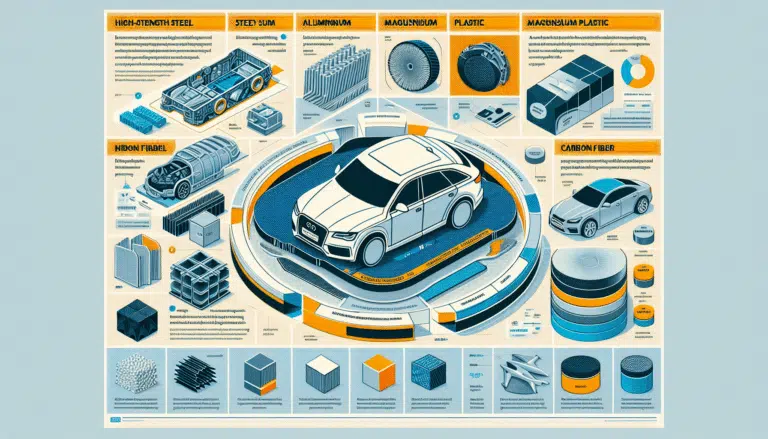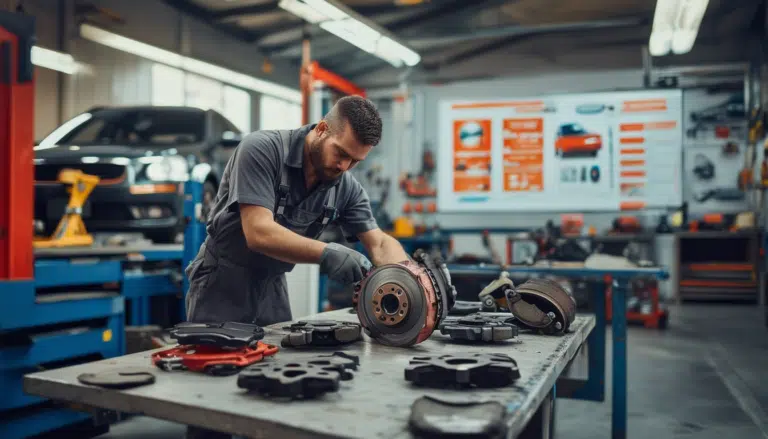Economic maintenance tips that positively impact fuel consumption
The proper maintenance of a vehicle is essential to ensure optimal performance and efficiency in fuel consumption. Implementing practical tips can not only prolong the lifespan of the car but also have a significant impact on energy consumption. From regular component checks to adopting more efficient driving practices, every small action contributes to cost reduction and promotes a more sustainable environment. In this article, various strategies for economic maintenance will be explored to achieve a balance between efficiency and savings in daily life.
The proper maintenance of a vehicle not only ensures its good functioning but also plays a crucial role in optimizing fuel consumption. With various practical tips, it is possible to reduce expenses while contributing to greater sustainability. In this article, we will explore different maintenance strategies that will allow you to improve your car’s efficiency and save on fuel.
Conclusion
By implementing these economic maintenance tips, it is possible to improve fuel consumption efficiency and reduce expenses. Every small adjustment or check can make a difference, benefiting both the user and the environment.
Periodic Fuel System Checks
The fuel system is vital for the efficient operation of your car. Conducting periodic checks of this system, which includes injectors and the fuel pump, can prevent problems that affect performance. Keeping the system clean contributes to better fuel atomization, improving combustion and thereby optimizing fuel consumption.
Proper Tire Pressure
Tires are the only contact point between the vehicle and the road, and their condition can greatly influence fuel consumption. Checking and maintaining tire pressure within recommended levels not only improves safety but also reduces engine effort while moving. Inadequate pressure can increase rolling resistance and consequently fuel expenses.
Use of Air Conditioning
Air conditioning can be one of the main sources of additional fuel consumption. It is advisable to use it sparingly and opt for natural ventilation whenever possible. Moreover, performing proper maintenance of the air conditioning system can improve its efficiency and at the same time save on fuel consumption.
Engine and Oil Checks
The engine requires appropriate lubrication to operate efficiently. Performing oil changes at regular intervals and using the type of oil recommended by the manufacturer is essential. A well-lubricated engine operates more smoothly and efficiently, positively impacting fuel consumption. Engine checks also allow for identifying problems before they become costly repairs.
Reducing Vehicle Weight
Reducing vehicle weight is a little-considered but highly effective strategy for improving fuel consumption. Assessing which elements are truly necessary and removing unnecessary loads can have a direct impact on fuel efficiency. Less weight means the engine needs to exert less effort, translating to lower consumption.
Leveraging Available Technology
Modern technology offers various solutions for monitoring and optimizing fuel consumption. Tools like mobile apps for tracking consumption and navigation systems that suggest more efficient routes can contribute to more economical driving. Investing in technology that facilitates consumption tracking can lead to significant savings.
Using Alternative Fuels
Researching the different fuel options available can be beneficial. Some vehicles can operate on biofuels or additives that improve engine efficiency. Analyzing the options and choosing the most suitable one can contribute to an improvement in fuel consumption, as well as to environmental sustainability.
The implementation of economic maintenance tips can be an effective strategy to optimize a vehicle’s fuel consumption performance. A proactive approach to car care not only contributes to a more sustainable economy but also significantly reduces expenses associated with fuel consumption. Through simple actions, such as maintaining proper tire pressure and performing regular oil changes, you can ensure that the vehicle operates under optimal conditions.
Additionally, the maintenance of the fuel system and the checking of the filters are key elements to ensure that the engine operates efficiently. A clean and well-maintained fuel system allows the engine to consume less energy to function, translating to lower fuel expenses during trips. Similarly, checking the condition of the spark plugs and the exhaust system can greatly enhance fuel economy.
On the other hand, it is essential to consider the impact of vehicle weight on consumption. Reducing unnecessary loads and avoiding the use of accessories that create wind resistance can be simple actions that optimize fuel efficiency. The way you drive also plays a crucial role; adopting a smooth driving style and avoiding sudden accelerations or hard braking can contribute to more efficient fuel use.
Finally, by implementing these maintenance practices, not only is economic savings encouraged, but there is also a reduction of environmental impact. As vehicles operate more efficiently, pollutant gas emissions are reduced, benefiting the environment and contributing to a cleaner, more livable world.





